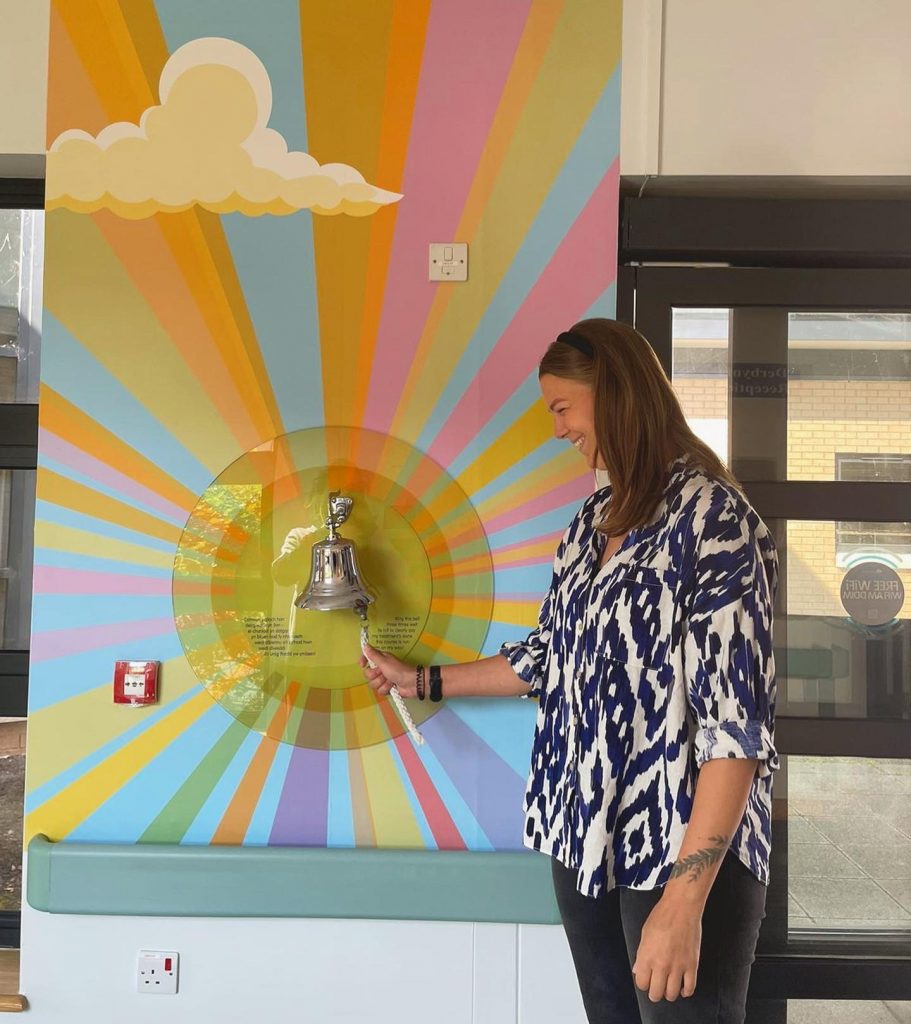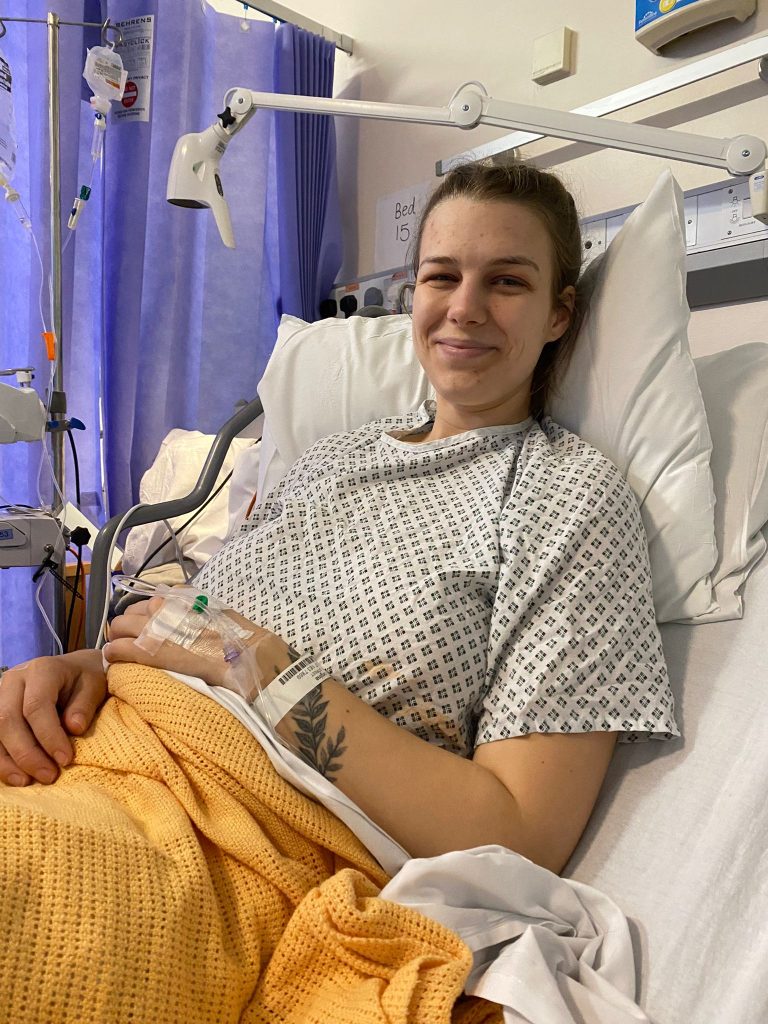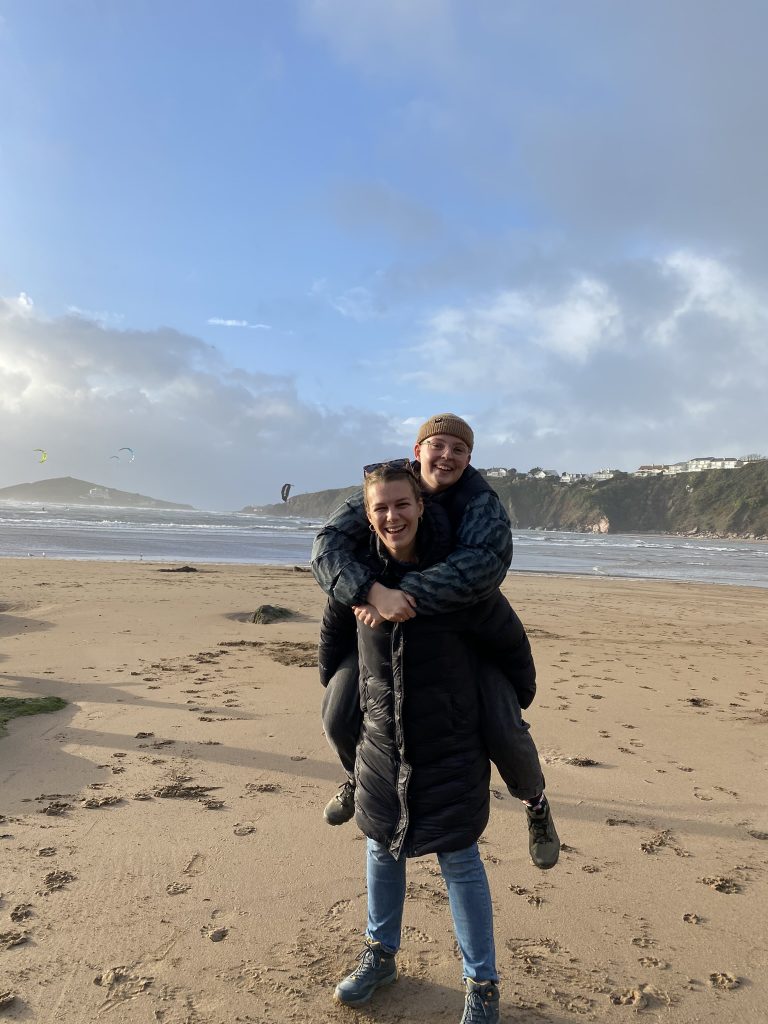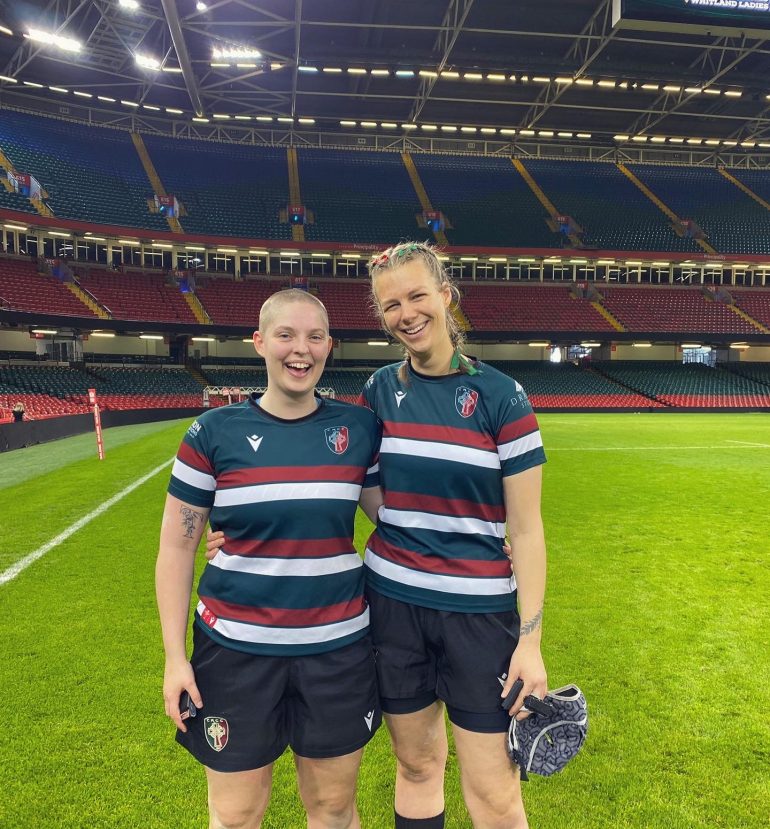Georgina Wren is urging other young people to have smear tests following a cancer diagnosis at the age of 25

A CARDIFF University Ladies rugby player who was diagnosed with cervical cancer after a routine smear test is set to return to the field this month after making a full recovery.
“There was a point when all the doctors and physios said there was no way you will ever play rugby again,” said Georgina Wren, a seventh year PhD student studying Behavioural Genetics who also plays for Clwb Rygbi Cymry Caerdydd.
“But I have never really taken no for an answer. It is nice to finally be able to say now that I am going back and I will be absolutely fine.”
Georgina was 25 when she received a letter to attend her first routine smear in February 2023.
The test showed she had abnormal cells which needed to be removed, but she was not worried until a biopsy revealed she already had a tumour.
“The doctors basically said you have cancer, we will see you in a couple of weeks. For two weeks, I didn’t really tell anyone. I was just completely in the dark.
“I had exactly two months between when I got diagnosed and my surgery. At the hospital I had a radical hysterectomy with lymph node removal, so everything apart from my ovaries.
“I was in hospital for about a week and it was a really big recovery. I had to learn to walk properly again and I have a big scar.
I have never really taken no for an answer. It is nice to finally be able to say now that I am going back.”
Georgina Wren, 25
“I then had another scan to see if there were more cancer cells left, and there were so I had chemotherapy and radiotherapy, which finished at the end of July.
“Then I spent August celebrating, trying to get my immune system back on track.
“But I also had lots of post-chemo and post-surgery complications. At one point I thought I had sepsis and had to go to hospital. I didn’t, I just had no white blood cells whatsoever so I couldn’t fight off an infection. I was really ill.
“I had secondary lymphedema, so all my feet swelled up so I couldn’t walk. I was basically just in and out of hospital all the time.
Now I try to be grateful for everything I do, even if it’s just being able to jump up and down or sprinting. I used to say I hated sprinting!”
“And then I thought I was fine. I went back to work on Monday, October 2. But less than two days later I got rushed in for emergency surgery because I had a bowel obstruction and a hernia, caused by my radiotherapy.
“I was extremely unwell — I had to have another operation through the same scar as my hysterectomy. The doctors thought I was going to have to have a stoma, but luckily they could just sew me up.”
Georgina struggled with losing the ability to exercise and play rugby during her illness.
“I went from being super healthy and training seven, eight, nine times a week to not being able to sit up in bed. It was a complete contrast, I didn’t have any strength to do anything.
“Now I try to be grateful for everything I do, even if it’s just being able to jump up and down or sprinting. I used to say I hated sprinting!”

Georgina is excited to get back on the field, and has been working hard in training
“I have really just been trying to recover and get back into rugby.
“I am back in training at the moment, so since November there are four or five of us who have all had different injuries, so we have a little rehab club with the club physio.
“I started my return to contact last week. Every time I come to training even if I just do one small thing like joining in contact, the girls will celebrate it. They are so excited to see me get back on the field — the support is great
“It is so hard going from so normal and active to your life changing overnight. I have learned more in the last year about my friends, my relationships, my body than I have in my whole life.
“I have learned to slow down and see the value in people and how much people show up for you when you are going through hard stuff.”
I have learned more in the last year about my friends, my relationships, my body than I have in my whole life.”
While Georgina is grateful for her recovery she struggles with the fact that other people can’t always see what she has been through.
“It’s really hard. I almost want to walk around with a sign on my head that says ‘I have been through cancer!’ not because I want the attention but just so people are aware.
“People might look at me training and think ‘well you have only been doing on-field sessions for this long, its not that much’ but I have been spending hours and hours at the gym and hours and hours at my rehab.
“It is one of the things people don’t see, the amount of hours it takes in to get back up and running.”
Georgina got engaged to their partner Em Haywood in February and they have been a great support to her.
“I think they are always going to be worried about me and protective about me getting back on the field. But they know how much work it has taken to get to this point, and how unlikely we thought it would be. I am not nervous though, just excited.”
Georgina has also spoken to Cancer Research about her experience, and she has received lots of support from the public on social media.
I have had people say I have encouraged them to get a smear test. If it makes a difference to one person, then that’s great!”

“It’s been really cool. It’s a nice opportunity to share my story and talk about the importance of smear tests. I have had people say I have encouraged them to get a smear test. If it makes a difference to one person, then that’s great. The attention feels odd, but it is nice.”
Georgina is urging other young people like herself to get their smear tests.
“Cervical cancer is so much more common in women above 40. But there is still a proportion of people getting diagnosed much earlier.
“Smear tests can be slightly physically uncomfortable, but I learned afterwards that there are loads of ways GPs can support you. You can have a chaperone, you can have gas and air if you have had bad experiences in the past. There are lots of ways doctors can help make you comfortable.
“They would always rather you have your smear test than not.”
• See here for more information about cervical screenings



